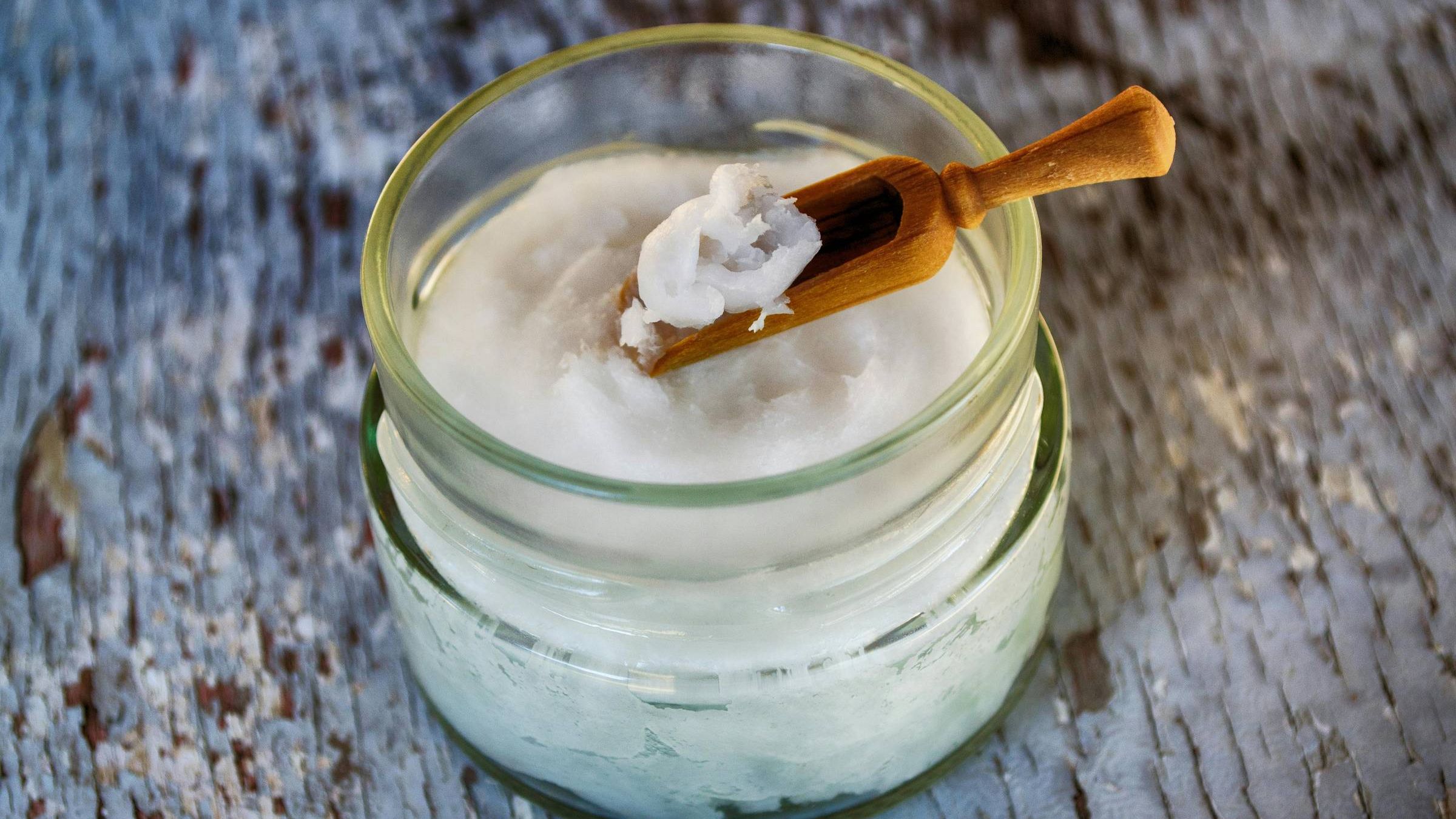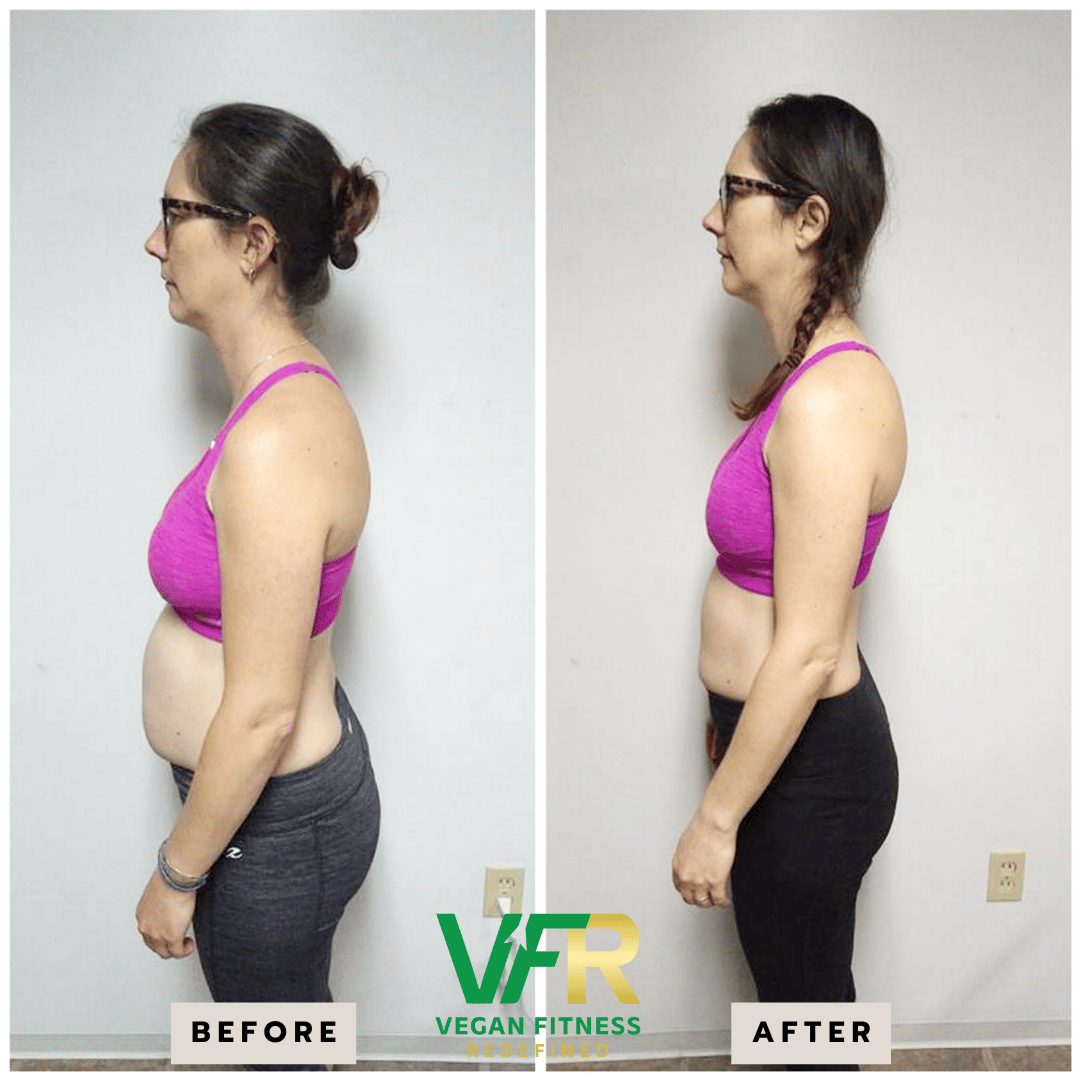Edition #161: Is gluten worth it, add coconut oil, and my 'new' favorite health habit
Aug 13, 2025
Welcome to 1-3-1 Fridays, my weekly newsletter, where I reveal evidence-based strategies to get lean, strong, and create optimal health.
You'll receive one personal health insight, three actionable tips, and one concrete action step. Let's dive in.
What's in store for today:
- Is using gluten a concern for your health goals?
- Why coconut oil might kick out the rest of your oils...
- The 'new' habit that's changed my health the past 2 years.
One of the things I have to do often is reset expectations.
The fitness industry is a wild, wild west.
The outlandish promises being made are incredible.
Drop 15 pounds in 1 month.
Gain 10 pounds of muscle in 3 weeks.
It's part of why I've been hesitant with shorter time frames for coaching.
(I’m resetting my expectations for our small group challenge on Sept 3rd).
Here's what I mean:
If you come into your fitness expecting to drop 30 pounds of body fat in 2 months, then you're set up for failure.
For fat-loss, the gold standard by top professionals is 0.5 - 0.75% of your bodyweight in pounds per week.
That averages out to about 1 pound of body fat loss per week.
For beginners, the average muscle gain is 2-4 pounds a month. That's about 0.5 to 1 pound each week.
The more trained you are in lifts, the harder and slower it will be to build muscle.
Muscle-gaining rates are usually about 50% or more slower than fat-loss rates.
You can drop 20 pounds of body fat in around 20 weeks.
To gain 20 pounds of muscle could take years.
I'm mentioning this now because I've had several recent chats with clients.
They often think they can lose fat and build muscle much quicker than is possible.
Again, the problem here is the fitness industry's ridiculous weight loss claims.
The solution here is simple:
Educate yourself and understand what the data teaches us.
I'm not sure I want to call it 'science' anymore. Big Pharma and Big Medicine have made that term hard to trust.
Instead, follow the facts.
The whole premise of the scientific process is to hypothesize, experiment, and test. Over and over again until you have a working theory.
Over time, this working theory can eventually become a law if it's unbreakable.
For example, the way you drop body fat is through a caloric deficit (aka eating less food).
This is a proven law of thermodynamics.
Energy cannot be created or destroyed - it can only be transferred.
Here's another weight loss law most people won't like hearing:
If you drop weight too fast (body fat), the rebound rate for regaining weight gets higher.
The more body fat you have now, the greater your risk of gaining more later.
Slow is smooth and smooth is fast.
For fitness, this is even more true.
The tale of the tortoise and the hare is crucial for career-focused vegans or those wanting to go vegan.
If you have little time for workouts and meal prep but seek lasting results, this story can inspire you.
Your path towards lifelong health begins when you take things steadily.
Calm, steady, and smooth.
Smooth is fast when you start slow.
Lesson: Aim for permanent results, not just quick results.
Here's Your 1-3-1 Friday:
1.) Is gluten worth it
For busy vegans, gluten can be a game-changer — if your body tolerates it well.

Gluten foods like seitan and some sprouted breads are handy. They are high in protein and great for quick meals.
Seitan, for example, packs around 20–25 grams of protein per 3–4 oz serving and can be prepped in bulk for the week.
That said, there are valid concerns:
- Gluten sensitivity and celiac disease affect a small number of people. They can lead to bloating, fatigue, and inflammation.
- Many wheat products in the U.S. are made with highly processed flours from genetically modified wheat. Gluten itself isn’t GMO, but wheat production can involve hybridization and pesticide exposure.
- Some breads and wraps are highly refined. They can cause fast blood sugar spikes. This is not good for lasting energy.
Here’s a simple gluten framework to follow:
- If you handle it well, go for minimally processed, high-protein foods like seitan, sprouted grain bread, or whole wheat pasta.
- If you’re unsure: test a 2–3 week gluten-free period, then reintroduce and monitor energy, digestion, and skin health.
- If you have confirmed sensitivity: use gluten-free high-protein swaps like lentil pasta, tempeh, or tofu.
The key is to use gluten intentionally. It can be a good protein source in a vegan muscle-building plan.
But it doesn’t mean you should eat only bagels and pastries.
I also thought it would be helpful if I shared my take on gluten.
Most of my life, I ate gluten.
Yet over the past few years, I've experimented with gluten in and out of my diet.
Healing from psoriasis has led me to experiment heavily with my body.
Psoriasis might be triggered by the Epstein-Barr Virus. Since viruses and pathogens feed on foods, I notice my skin flares up more when I eat gluten.
When I take it out (haven't eaten in 18 months), it gets better.
Many chronic autoimmune conditions have no known causes.
These conditions may be caused by internal pathogens like bugs, viruses, and parasites that thrive on GMO foods.
Hence, my ongoing gluten starvation experiment on EBV.
2.) Add coconut oil
Coconut oil is one of those “healthy fats” that gets both hype and criticism.
It can be a great tool. It adds flavor, enhances cooking stability, and provides some health benefits.
But it’s best to use it in moderation.
Benefits worth noting:
- Contains medium-chain triglycerides (MCTs), which are quickly absorbed and used for energy.
- Stable at high heat, making it a solid choice for stir-fries, baking, or roasting.
- May support healthy HDL cholesterol levels in moderation.
Coconut oil is high in calories, with about 120 calories in each tablespoon. So, it can add up fast.
In fat loss phases, too much can push you out of your calorie range without providing much satiety.
And while some MCTs can be beneficial, coconut oil is still mostly saturated fat, so balance is key.

Here’s a practical coconut oil framework:
- Use 1–2 tsp for cooking or finishing a dish — enough for flavor without calorie overload.
- Rotate fats: balance coconut oil with other healthy fats like flax, chia, hemp, and walnuts for omega-3 intake.
- Save higher amounts for phases when muscle gain or higher calorie needs are the goal.
Coconut oil can fit into a high-performance vegan diet. But remember, it's a tool. You still need to watch your portions to eat clean.
Like all fats, be mindful that 1 gram of fat has 9 calories (which is double that of carbs and proteins).
There's a reason why overeating fats is so easy - they taste great.
3.) My 'new' favorite health habit
I've been experimenting (again) on myself each morning.
One of the 'new' habits, which isn't really new, has been my daily Qi Gong practice.
In mid-summer 2023, I committed to a daily Qi Gong practice.
What started as a 30-day challenge transformed into a 2-year practice.
Little did I know how much this would impact my life.
As I practiced each day, I began to fall in love with the stillness of movement.
Qi Gong is like moving meditation.
Qi Gong is different from popular exercises like strength training and running.
Its main idea is based on non-effort.
The ancient Taoists seemed to have intuited that we have three bodies as humans:
- A physical body
- An energy body
- A consciousness body
Early trauma, conditioning, and painful experiences can break us. Practices like circumcision, injections, and eating meat affect children deeply.
This damage often happens early in life, harming our energy fields.
Most of us never reconnect to the complete, whole part of our psyches that we arrived here with.
Instead, we live fragmented lives due to our fragmented psyches.
It's the circle of samsara (suffering) we all live in.
It's uncomfortable, but society relies on these fragmented systems. Fragmented humans create them.
So, back to Qi Gong.
Taoists understood that we can reconnect with our energy bodies.
Not only is it possible, but we can also create lasting health and longevity with the exercises they uncovered.
So Qi means energy or life force.
Gong means work.
Qi Gong means working with your energy/life force.
As I've practiced each day, I've become more aware of my bodily sensations.
I've noticed during my training that even short sessions of 2-5 minutes matter. I can tell when I'm not feeling well, such as when I'm near a Wi-Fi router or a 5G phone.
For reference, we can all sense energy.
It's just that most of us have very low energetic sensitivity (refer to trauma and early childhood).
It doesn't take long to see positive changes in your health with Qi Gong.
The depth that you can pursue with it is endless.
Modern science still doesn't know how to verify or prove the existence of Qi.
But it certainly exists.
If you want to learn more about Qi Gong, find a qualified instructor near you or online.
While meditation helped me stabilize my mind, Qi Gong has helped me reconnect with my body.
Combine both of them for lifelong health.
Here's a neat video on the power of Qi:
1 Action Step
Review your fitness data from the past few weeks. Where did you do well? Where can you improve? Write down your insights.
Client of the Week

Maggie is a busy mother. Wife. She’s also a vegan activist and vocal leader in her community.
Yet, over the years, Maggie stopped putting herself first.
In fact, in one of our first conversations, Maggie shared that she despised working out.
She never really liked it.
Yet, she recognized that as she entered her 40s, she needed to take care of her health.
Feeling out of shape, overweight, and ‘weak’ in her body were her biggest concerns.
So we got to work.
Strategy: We focused on a gradual ascent with her habits. The first order of priority was learning to enjoy her workouts.
3 days of lifting and starting to fall in love with exercise.
We then focused on increasing her plant-based protein due to her low protein numbers.
Finally, we began to work on further specializing her training due to having a knee procedure in the first few months of working together.
We focused on optimizing her health routines due to gut issues and worked together with her naturopath to create even better health results.
Wins: Maggie didn’t skip a beat. She could have missed a workout during her knee surgery. She didn’t.
She could have stopped tracking nutrition during her stomach issues. She didn’t.
Part of Maggie’s success came down to her mental and emotional transformation.
She transitioned from a victim mindset to a growth mindset. She consistently showed up on our weekly mindset classes inside our Accelerator Program.
She dropped 5+ inches from her waist, 12+ lbs, and tripled her strength to the point she could carry 50+ lb cat food bags easily, even with her small stature.
If she could do it, so can you.
Finish your summer strong and take the reins of your health.
One Quote To Finish Your Week Strong
“What the society thinks is of no interest to me. All that's important is how I see myself. I know who who I am. I know the value of my work.”
― Robin Sharma
Next week, spending some extra family time.
So, taking a break from letter next week.
Enjoy the last few weeks of summer.
As promised, get leaner on plants in under 5 minutes.
See you in 2 weeks,
![]()
P.S. Want to drop 4-8 pounds in 30 days or build 2-4 pounds of muscle?
Click here to apply for one of the remaining spots for our High Performance Vegan Challenge.
25 spots. 30 days. $49.
50% off the first challenge.
Apply for a spot here (only serious and coachable challengers; don't apply if you're wishy washy or unsure about your commitment).
Change your health starting September 3rd.
|
Whenever you're ready, there's 3 ways I can help you:
|
References
- Fasano, A., & Catassi, C. (2012). Clinical practice. Celiac disease. New England Journal of Medicine, 367(25), 2419–2426.
- Harvard T.H. Chan School of Public Health. (n.d.). The truth about fats: the good, the bad, and the in-between.
- St-Onge, M. P., & Jones, P. J. (2002). Physiological effects of medium-chain triglycerides: potential agents in the prevention of obesity. Journal of Nutrition, 132(3), 329–332.
- Shewry, P. R., & Hey, S. J. (2015). The contribution of wheat to human diet and health. Food and Energy Security, 4(3), 178–202.

